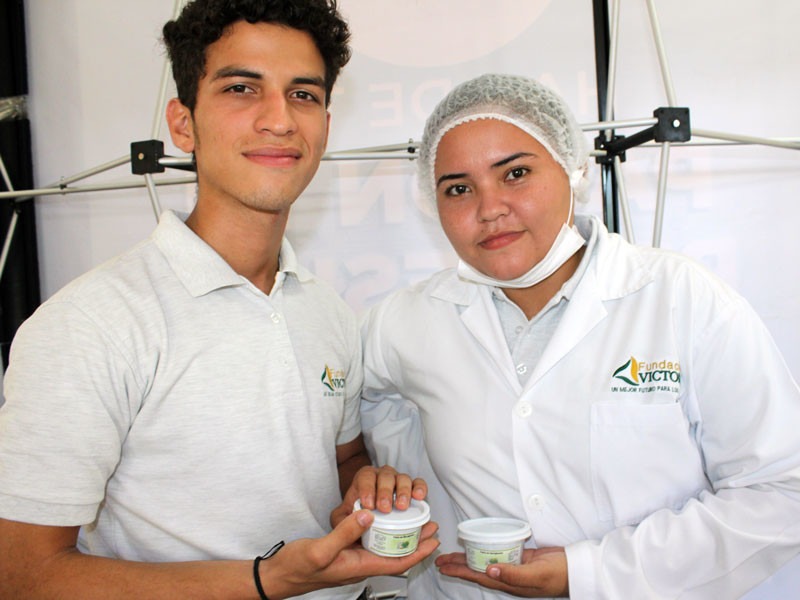Managua, NicaraguaA Nicaraguan boxing champ has entered the ring as a new business owner, achieving her longtime goal of opening a training gym in the country’s capital.
Entrepreneur Leticia Caldera, 27, opened the doors of her gym five months ago and offers weightlifting and boxing training for girls and boys as young as age 6.
Leticia was able to start her career as a small business owner and trainer after graduation from technical education school Centro Juvenil Don Bosco, where she earned her degree in physical conditioning and sports training.
She calls choosing a technical school “the best decision I’ve made about my studies.”

“With my technical career, I got the theoretical knowledge and the practical experience,” Leticia says.
Centro Juvenil Don Bosco is one of eight technical vocational center partners receiving support from the Aprendo y Emprendo program, which seeks to improve access to and quality of technical education for at-risk youth, focusing on the vulnerable Caribbean Coast region and ethnic minorities.
The program, funded by the U.S. Agency for International Development and implemented by Creative Associates International, provides scholarships for youth to pursue technical degrees, strengthens technical schools and builds collaboration with the private sector.
For Leticia, opening her own gym is more than just a personal achievement – it also means she can help other girls and women in her neighborhood of San Judas.
“There are risks for the girls and young women, and knowing boxing gives us security,” says Leticia, winner of the 2017 national women’s boxing championship the Alexis Argüello Cup.
As a female boxer, Leticia says she has faced gender stereotypes, but that she overcomes them when she puts on her boxing gloves and steps into the ring.
“I have heard both positive and negative comments,” she says. “But when people realize I’m ready to take on the role of boxing coach, they trust my ability.”
Entrepreneurs cook up new venture

Elsewhere in Managua, two classmates with a passion for cooking developed their own recipe for starting a new business: combine fresh ingredients and technical know-how.
Beral Morales, 17, and Katy Jiménez, 25, both students at technical education and vocational training center Fundación Victoria, are launching a business selling a unique spearmint sauce, which will soon be available in stores.
“As part of our assignment at Fundación Victoria, we had to develop a product and service,” Beral says. “Soon this product will be more accessible to buyers.”
Beral and Katy combined their technical knowledge to launch their company: He is studying business administration, and she’s in a food technology program. The product is in the legal process of being registered, and the pair have found an investor who is covering the cost of their sanitation registration.
“Using the industrial cooking techniques I’ve learned is one way I can apply my passion for food,” says Katy. “At Fundación Victoria, we learn to work with meat, dairy, fruits, vegetables and beverages following hygienic and sanitary standards for manufacturing.”
Beral, Katy and Leticia presented their new businesses at a technical education forum and fair hosted by the Nicaraguan Network for Technical Education (RENET) during Global Entrepreneurship Week, Nov. 12-18. RENET, a group of educational institutions, training schools, businesses and youth-focused organizations, was established through Aprendo y Emprendo.
At the forum, Víctor Zúñiga, Director of Innovation and Entrepreneurship at the University of the Autonomous Regions of the Nicaraguan Caribbean Coast, said that young people need support, training and collaboration to launch businesses and create jobs.
“Entrepreneurial culture is based on innovation capacity and permanent training,” he says. “To promote their ability to take on new ventures, youth and organizations must work with a collaborative approach to create innovative products.”
With editing by Evelyn Rupert.